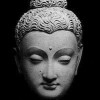The punishing of wits enhances their authority, and a forbidden writing is thought to be a certain spark of truth that flies up in the face of them who seek to tread it out.
Francis Bacon (1561-1626) English philosopher, scientist, author, statesman
(Attributed)
(Source)
Sometimes misquoted as "The punishment of wits ...."
Attributed to Bacon by John Milton, in Areopagitica (1644). It is actually Milton's translation from and paraphrase of a passage in Bacon, Advertisement touching the Controversies of the Church of England (1589):Wherein I might advise that side out of a wise writer, who hath set it down that punitis ingeniis gliscit auctoritas. And indeed we see it ever falleth out, that the forbidden writing is always thought to be certain sparks of a truth that fly up into the faces of those who seek to choke it, and tread it out.
The Latin, in turn, is from the "wise writer" Tacitus, in his Annals, Book 4, sec. 36.
In short, the quotation is partially Milton's translation of Tacitus (as quoted by Bacon), partially Milton's paraphrase of Bacon.
Quotations about:
counter-productive
Note not all quotations have been tagged, so Search may find additional quotes on this topic.


